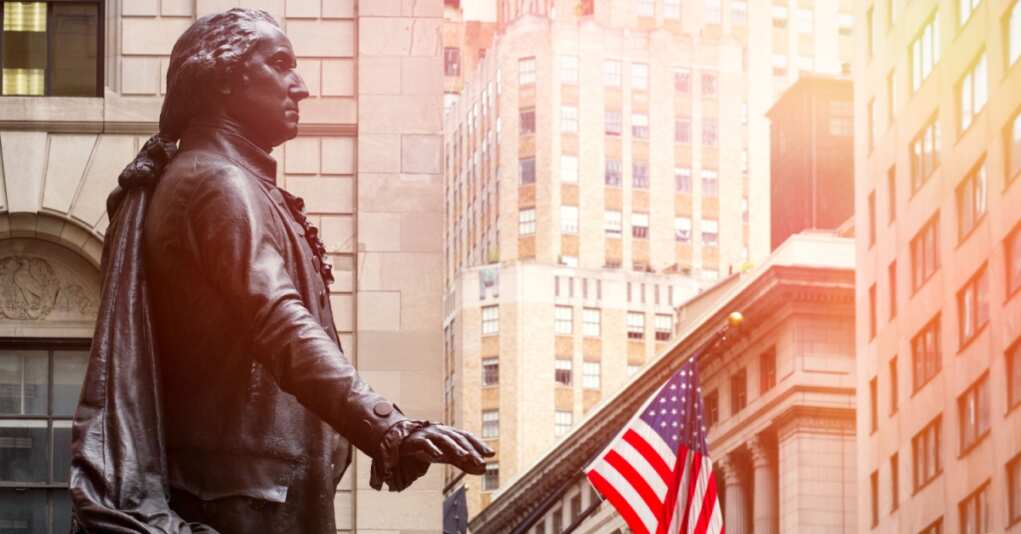From George to Donald: The Leaders America Needed

George Washington’s unanimous election as the first President of the United States is one of those rare moments in history where nearly everyone agreed on something. In a country now famous for its polarization, it’s almost comical to imagine a time when Americans of all political stripes rallied behind a single leader. Washington wasn’t just the most popular man in America; he was the only choice. There was no “close second,” no viral smear campaigns, and certainly no media pundits dissecting his every move. His unanimous election wasn’t just a testament to his character—it was an acknowledgment that America needed a steady hand to guide it through uncharted waters.
Now, fast-forward to today, and you’d think this kind of national unity is about as likely as finding a bipartisan bill that doesn’t include pork-barrel spending. Donald Trump, love him or hate him (and let’s face it, most of you here love him), didn’t exactly enjoy unanimous support. In fact, he’s the guy the media loves to loathe, the establishment loves to fear, and the coastal elites love to mock. But maybe—just maybe—it’s time for the left to realize what many of us have known all along: Trump was exactly the kind of leader America needed.
Consider the facts. Washington faced the daunting task of uniting a fledgling nation after a hard-fought revolution. He understood the stakes. Trump, similarly, walked into a fractured America, though this one was battling a revolution of its own—cultural, economic, and ideological. Washington had to establish the presidency as an institution of respect and authority, while Trump had to remind the political class that the presidency isn’t a club for elites; it’s a mandate from the people. Did he do it perfectly? Of course not. Nobody’s perfect, except maybe George Washington himself, and even he had a few skeletons in his closet (literal ones, if you consider Mount Vernon).
What’s astounding, though, is how quickly Trump’s critics have shifted their tone now that they’re staring down the consequences of rejecting him. Inflation is skyrocketing, international respect for America is waning, and the border looks like a scene from a dystopian movie. Oh, and let’s not forget the endless wars we were supposed to be done with. It’s almost as if the people screaming “Not my president!” for four years suddenly realized that, hey, maybe mean tweets weren’t the worst thing to happen to America.
But back to Washington. His unanimous election wasn’t just a reflection of the times; it was a reflection of his ability to rise above petty squabbles and focus on the greater good. Trump, on the other hand, had to fight tooth and nail against a media-industrial complex determined to tear him down at every turn. Yet despite the relentless opposition, he managed to do what many thought impossible: shake up the system. He didn’t just drain the swamp—he exposed it for the bloated, self-serving quagmire it is.
The irony here is that Trump, like Washington, wasn’t a politician by trade. Washington was a farmer and a soldier. Trump was a businessman and a showman. Both men brought an outsider’s perspective to a role traditionally dominated by insiders. And both, in their own ways, redefined leadership for their eras. For Washington, it meant setting precedents that would endure for centuries. For Trump, it meant showing millions of Americans that they didn’t have to settle for business as usual in Washington, D.C.
Of course, the left will never admit this outright. They’d rather rewrite history than reckon with the reality that Trump’s policies—his America First doctrine, his economic strategies, his insistence on securing borders—were wildly successful. But as they watch their current leaders flounder, some of them must be asking themselves, “Was it really so bad?”
Trump may never enjoy the unanimous support Washington did, but he doesn’t need it. His legacy isn’t about pleasing everyone; it’s about standing firm in the face of adversity and doing what’s right for the country. And who knows? Maybe one day, when the dust settles and the history books are written, even his fiercest critics will grudgingly admit that he was the leader America needed—not the one they wanted, but the one who rose to the occasion.
Until then, let’s take a page from George Washington’s playbook: lead with conviction, unite where possible, and remind the powers that be that their authority ultimately comes from the people. That’s the real legacy of leadership, whether in 1789 or 2024. And if that’s not something worth striving for, what is?
